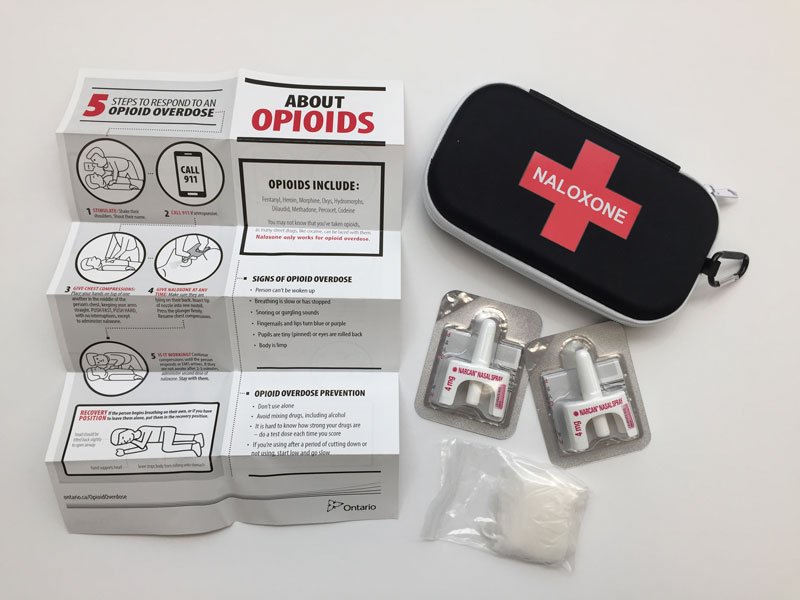City arenas and community centres across London will be equipped with naloxone kits after city politicians voted to overturn a committee-level decision made two weeks ago to forgo a year-long pilot project.

Naloxone temporarily reverses the effects of opioid overdose, and the kits will be added next to defibrillators at 29 public facilities where staff will also get training on how to use them.
But whether they’ll be used made up part of the debate about supporting the project, which will cost the city between $18,000 and $23,000.
“The pilot project that was undertaken in Kingston, has had zero use,” said Ward 2 Coun. Shawn Lewis. “Our staff informed us that we’ve had zero incidents in any of these 29 facilities that are being considered.”
Lewis also pointed out that by installing the kits, the city is assuming a liability risk if the medication expires or if a person waking up from an overdose is combative.

Get weekly health news
But Ward 11 Coun. Stephen Turner, drawing on past experience as a paramedic, said it’s unlikely that someone who is “almost dead” would rouse from overdose to stab the person administering naloxone, and that the city getting sued would be an “extreme circumstance.”
“What’s being put forward here is a pretty reasonable approach,” he said. Naloxone kits can be checked for expired medication during required checks of the existing defibrillators they’ll be paired with.
- Health Canada warns of fake semaglutide drugs, cites ‘product safety’ risks
- Virtual reality helping Peterborough seniors connect, experience the world
- Endometriosis care delays force Alberta woman to seek help abroad: ‘Just want my life back’
- Flu cases, hospitalizations continue to fall after 3-year peak over holiday
And the sentiment among proponents of the project was that if the drug saved at least one life, the kits would be worth their price tag.
“In the report, it talks about whether these are used or not. I don’t think that’s a valuable metric to determine whether the pilot was successful,” Turner said.
He pointed out that many facilities have pull-style fire alarms that have never been used. “But they’re part of the building code, for good reason. … Defibrillators, those can go years without being used. But when they are used, they have significant impact.”
Health officials say the declining rate of opioid overdose deaths — down to eight in third quarter from 22 in the first — can be attributed to the city’s temporary overdose prevention site, where naloxone is available.
The kits will cost the city $160 each, and the pilot project will be reviewed again after one year.










Comments